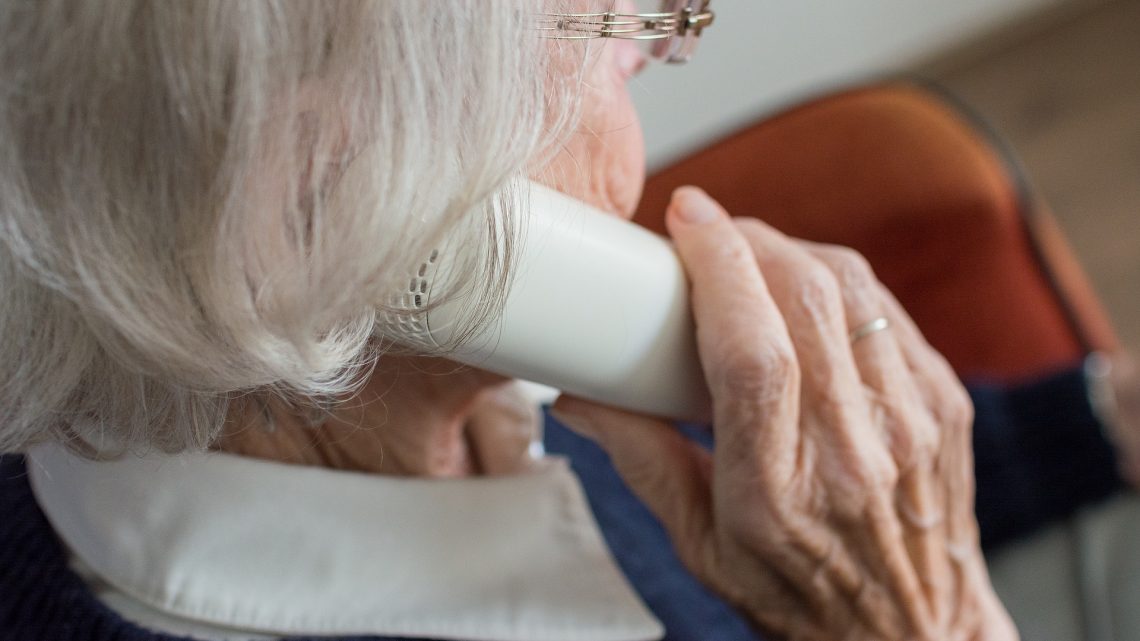Every year senior Americans lose about $3 billion to financial scams, according to the Senate Special Committee on Aging. Many of them are carried out by strangers over the phone but over 90% of elder abuse is committed by a caregiver or family member, usually an adult child or grandchild. As stated by elder abuse lawyers Conchin, Cole & Jordan, family members and strangers take advantage of an elderly person’s decreasing mental capacity to get money from them. These are some common scams targeting seniors and how to prevent them.
1. Telemarketing and Phone Calls
One of the most common scams are telemarketing and phone scams. Scammers prey on older people over the phone because they are more familiar with over the phone transactions, which makes it more likely that they will provide credit card and other sensible information through the phone. It’s also usual for seniors to fall victims to these scams because many of them live alone and they don’t have someone available to ask them if it’s a legitimate company to provide their information to. These scams are hard to trace and to report because there is no face-to-face interaction or paper trail.
2. The Grandparent Scam
The grandparent or family member scam is a fast and easy way for the scammer to get money because it takes advantage of the victim’s love for their family members. In this scam, the con-artist calls and tells the elder person that it’s their granddaughter or grandson, the grandparent will guess the grandchild’s name depending on who the caller sounds most like. After that the scammer knows they have gained the grandparent’s trust and asks them to send money for an “emergency”. They will usually ask the money to be sent via Western Union or MoneyGram because they won’t need to show an ID to pick it up. Normally these scams don’t go over hundreds of dollars, but it’s one of the easiest for a grandparent to fall for.
3. Fake Medicare and Medicaid Representatives
Medicare, Medicaid and Social Security beneficiaries are targeted by scammers who pose as representatives for any of these entities and whose purpose is to trick seniors into disclosing personal and financial information. Disclosing information such as a social security number, bank accounts or Medicare number can lead to unauthorized withdrawals from the beneficiary’s account or identity theft. Scammers will call claiming that they need to update the senior citizen’s account or send out new insurance cards, to do this they will need to verify their personal information. Using this excuse, they gain access to their sensitive information.
4. Reverse Mortgage Scams
Reverse mortgages are available for people 62 years or older who own their property or have a small balance on their home. Property owners can borrow money from their home’s equity, usually to supplement their retirement income. Senior citizens are targeted for this type of loan through vague advertisements on TV, radio and mail, investment seminars or through local organizations such as churches.
A reverse mortgage scam can be committed by people or companies posing as real estate or financial service providers to steal equity from a senior citizen’s property. In this type of scam a homeowner may be offered an investment opportunity, assistance with a foreclosure or refinance. The scammer will access the homeowner’s equity and can use these funds to either purchase another home that will look good on the outside but in reality, has substantial damage. The funds can be extracted with the excuse of using them to buy stocks or life insurance, or for a renovation on their current home. The scammer will ultimately drive all or most of the funds to their own account and leave the homeowner with no equity on their property.
5. Funeral Homes and Cemetery Scams
Funeral homes and manipulative sales people will often over sell products and services to seniors or family members by taking advantage of an unfortunate event. If you are pre-planning your funeral, make sure the sales person shows you the actual price of every item. Some sales people will try to sell you the most expensive items, ask to see a list of all the products they offer with their prices. Funeral homes can make it appear as if you have to purchase everything from them, this is not the case, you can purchase a casket or urn or other items from a different funeral home and have the rest of the services provided by another. We recommend you read all contracts and purchasing agreements carefully and make sure that all your requirements are in writing. Think about all your options carefully before making a decision, don’t make an impulse purchase just because a sales person is pressuring you to do so.
How to Prevent Financial Scams
There are a few ways that you can prevent and protect yourself or a loved one from being a victim of one of these scams.
- Never give private information over the phone to anyone. This includes social security numbers, Medicare number, credit card and baking information.
- Always ask solicitors over the phone to prove their identity, if you don’t trust them politely decline their offer and hang up.
- Medicare, Medicaid and Social Security Administration will never call and ask you to disclose sensitive information over the phone, if you receive a call asking for this hang up and report the call to the appropriate agency.
- Use direct deposit for benefit checks instead of having them mailed. This will prevent someone from stealing them from your mailbox.
- Closely monitor your credit report and bank accounts to catch any fraudulent activity.
If you were the victim of a scam or any type of abuse, don’t be afraid or embarrassed to talk about it with the authorities or someone you trust. If you notice missing funds from your account, call your bank or credit card company and cancel the credit and debit cards linked to the account. If you are being abused by a caregiver or someone close to you, call Eldercare Locator at 1-800-677-1116 or visit their website at https://eldercare.acl.gov. Don’t feel like you are alone in this, there are many people and organizations who can help you.





No Comment